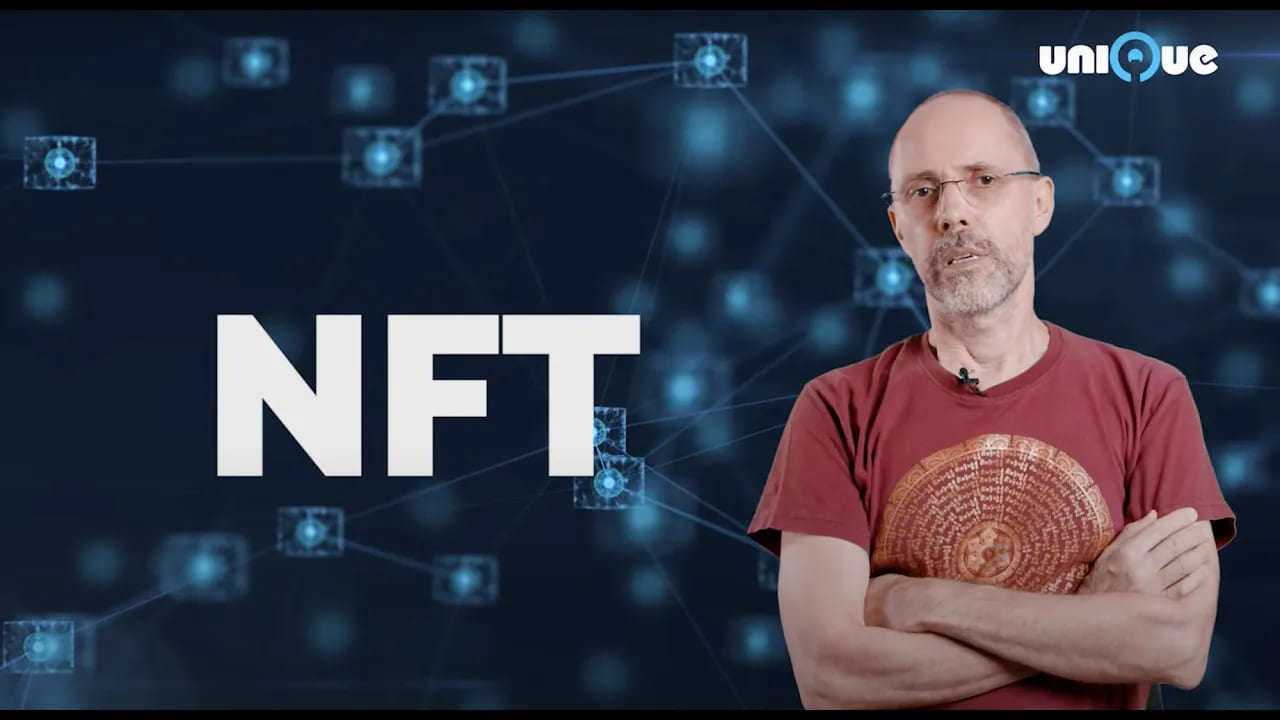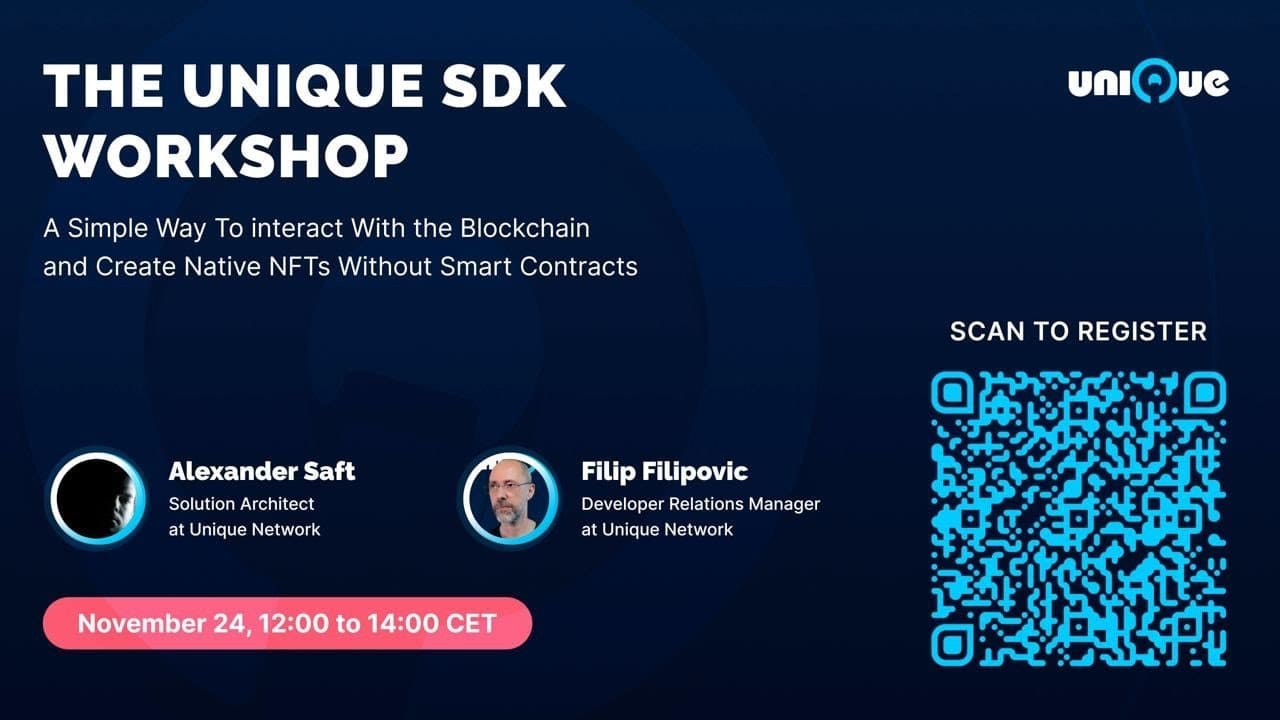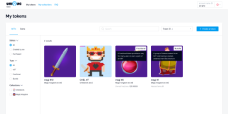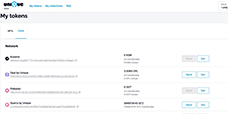In the bustling landscape of the digital age, the Web2 industry has ushered in unprecedented connectivity and convenience for event organizers and enthusiasts alike. However, this progress has not been without its drawbacks, as profiteering and ticket scalping have become rampant, inflicting substantial consequences on consumers and the event management industry.
According to a recent CNBC article, an astonishing 12% of all ticket purchases for events are fraudulent.
Countless events have fallen victim to inflated prices, leaving fans frustrated and organizers struggling to maintain fair access to their offerings. This was demonstrated during the recent Taylor Swift concert tour, where some tickets were fraudulently sold for as high as $22,000 on resale websites.
But as technology continues to evolve, so do the solutions it offers. Web3 has emerged as a beacon of hope in the current landscape, offering a decentralized approach and emphasis on transparency that could pave the way for innovative solutions to combat pressing challenges. Non-Fungible Tokens (NFTs) are a new and exciting way for event organizers to take charge, stop ticket reselling, and build better connections with loyal fans.
This article discusses how NFTs can help manage events. We'll see how utility tokens are changing event management and how they could help solve problems that event organizers have with event branding.

Why has there been a surge in the use of tokenization for event management?
Tokenization converts real-world assets, such as event tickets, merchandise, or experiences, into digital tokens on a blockchain. This decentralized technology profoundly impacts event branding by introducing transparency, security, and efficiency into the ecosystem.
One of the main benefits of tokenization is that it can establish a direct and trustless relationship between event organizers and attendees. This allows organizers to engage with attendees authentically, elevating event experiences and bringing personalized experiences. For example, organizers can craft an event catering to individual preferences by creating tokens representing unique access tiers, VIP perks, or exclusive merchandise.
Tokenization also opens up the possibility of secondary markets and trading. This means that attendees can transfer or sell their tokens to others, creating a vibrant ecosystem around the event. This can help to amplify the event's reach and generate additional value and excitement for token holders, as some attendees may perceive these tokens as assets with the potential for appreciation. This brings us to the concept of utility NFTs.
Looking into Utility NFTs And The Evolving Landscape Of Event Branding
Both the Web2 and Web3 industries recognize NFTs as extraordinary digital assets that cannot be replicated or exchanged on a simple one-to-one basis. Each NFT has its unique qualities, including ownership, rarity, and origin, making them particularly suitable for applications within the event sphere.
NFTs are ushering in a revolutionary wave across the event industry, introducing fresh avenues for engagement, recognition, and value creation. These digital assets empower event organizers to present more exclusive content and limited-edition collectibles, such as digital artwork, event photographs, or videos, which attendees can possess and proudly display.
The possibilities for utilizing NFTs in event branding are vast and far-reaching:
- Attendees can receive digital tokens that provide VIP access and privileges. Digital tokens offer exclusive benefits such as backstage passes, meet-and-greets, or entry to after-parties.
- Utility NFTs can be used as gamification tools during events. Organizers can create interactive experiences where attendees collect NFTs by completing tasks or exploring event venues. These NFTs can then be redeemed for rewards or future event-related perks.
Using NFTs, event organizers tap into people's keen interest in memorable online experiences. This enhances the event's identity and makes lasting memories for attendees. NFTs also help organizers prove the authenticity and origin of event-related items. By turning physical goods into digital tokens or creating exclusive digital versions of event souvenirs, organizers can ensure that these items are genuine and can be traced back, making them even more appealing and valuable to attendees. Let's review the basics before we move on to the specifics.
What is NFT utility?
NFT utility refers to the practical benefits an NFT can provide its owner. This can include access to exclusive content, services, or events and the ability to earn rewards or participate in governance. NFT utility differentiates NFTs that are simply collectibles from those that have real-world value.
How do Utility NFTs work?
Utility NFTs work like any other NFT, but they have an additional layer of functionality that gives them real-world utility. This could be anything from access to exclusive content or events to in-game items or rewards. The possibilities are endless, and as the NFT space continues to develop, we're likely to see more innovative uses for utility NFTs.
Amplifying Event Reach and Recognition through NFT Utility
By providing sought-after digital collectibles, organizers instill a sense of rarity and value, encouraging attendees to engage with the event and become brand advocates. Utility NFTs also unlock doors to exclusive access to events plus exclusive benefits for attendees. By minting NFTs that grant exceptional privileges like backstage passes, front-row seats, or exclusive meet-and-greets with speakers or performers, organizers cultivate an atmosphere of exclusivity and reward for their most dedicated attendees.

Organizers can use utility tokens to create interactive and gamified experiences for attendees, fostering heightened engagement and an atmosphere of excitement. This can be done by designing virtual real estate, treasure hunts, scavenger hunts, or challenges where attendees can collect NFTs at various event locations or by completing specific tasks. These interactive experiences amplify attendee participation and present opportunities to win rewards, discounts, or even physical event-related merchandise, further strengthening the event's recognition and value.
Exclusive collectibles, VIP access, and interactive experiences offered through NFTs increase attendee engagement, create an aura of exclusivity, and strengthen the event's brand.
How do utility NFT tickets transcend the standard ticket?
1. Utility NFTs as Memorabilia
Digital tokens enable event organizers to tokenize physical merchandise or create digital renditions of exclusive event memorabilia. By doing so, they ensure the legitimacy and traceability of these items, enhancing their desirability and increasing their value in the eyes of attendees. The premiere of the award-winning film project, STAY ALIVE, MY SON ("SAMS") Chapters 1 and 2, to global audiences using NFTs at SXSW 2023 is an excellent example of this.
NFTs provide a secure and transparent way to establish the provenance of event-related merchandise, allowing collectors to proudly own unique digital assets tied to the event experience. This integration of NFTs and memorabilia creates a dynamic ecosystem that amplifies the recognition and significance of event merchandise.
2. Utility NFTs as Social Currency
The scarcity effect makes NFTs more desirable and valuable, and redeemable NFTs are even more desirable and valuable because they can be redeemed for a real-world item or experience. This gives them a unique utility that other NFTs may not have. The scarcity effect also plays a role in the social currency of redeemables. Because they are limited in number, they become more desirable and valuable, which can lead to them being used to show status or exclusivity. For example, a redeemable NFT that could be redeemed for a ticket to a sold-out concert would be a valuable social currency.
By owning unique digital assets tied to an event, NFT holders essentially become unofficial brand ambassadors for a brand, sharing their collectibles and experiences on social media. These shared NFTs generate buzz and curiosity, attracting a wider audience for the event. The holder of the NFT could use it to show their friends and followers that they have access to exclusive events. This could give them a sense of status and prestige and make them more desirable as social partners.
3. Utility NFTs and Virtual Reality

NFTs and virtual reality (VR) combine to create immersive event experiences to truly captivate the event's attendees. By integrating NFTs with VR technology, event organizers can offer attendees a unique and interactive event environment.
Imagine entering a virtual concert venue to enjoy live performances from your favorite artists, explore virtual art galleries showcasing exclusive NFT artwork, or even participate in virtual events and meet-and-greets with speakers or performers. By merging NFTs and VR, event organizers can break the limits of traditional events and offer attendees unforgettable immersive experiences beyond physical barriers.
4. Utility NFTs and Customization
Event organizers can leverage the unique qualities of non-fungible tokens (NFTs) to offer sponsors exclusive opportunities to engage with attendees and NFT owners through branded NFTs. NFT customization can fit into the events industry in several ways, including:
- Merchandise: NFTs can create unique and collectible merchandise for events. This could include t-shirts, hats, and other items personalized with the event's logo or theme. NFT merchandise could also be used to provide access to exclusive content or experiences at the event.
- VIP experiences: NFTs can be used to create VIP experiences for events. This could include access to exclusive areas, celebrity meet-and-greet, or other VIP amenities. NFT VIP experiences could be auctioned off or sold to the highest bidder.
- Gamification: NFTs can be used to gamify events. This could include creating challenges or quests that attendees can complete to earn rewards, such as NFTs, merchandise, or cash. Gamification can help to engage attendees and make events more fun and memorable.
- Ticketing: NFTs can be used to create unique and personalized event tickets. This could include customizing tickets with the attendee's name, photo, or other information. NFT tickets could also provide access to exclusive content or experiences at the event. The Mad Bunny World project shows how users can customize their digital assets by changing their features and appearance to showcase their personalities and preferences. This is a perfect example of how NFT customization can transform the norms of ticketing.
- Fundraising: NFTs can be used to raise funds for events. This could be done by auctioning off NFTs, selling NFT merchandise, or using NFTs to track donations. NFT fundraising can be more efficient and transparent to raise money for events.
These are just a few ways NFT customization can be used in the events industry. As the NFT space evolves, we expect to see even more innovative and creative ways to use NFTs to create unique and engaging event experiences.
What are some successful examples of integrating NFT utility?
Real-world examples demonstrate the successful integration of NFTs in event branding. For instance, After-party announced the world's first NFT-gated art and music festival in Las Vegas, NV. NFTs provided all-access passes to the First Annual After-party NFT Art and Musical Festival.
Closer to home, let's explore some examples of utility NFTs and how Unique used POAPs to enhance Dundas' event branding and facilitated an advanced NFT ticketing solution for Lemonade Social — all without implementing complex smart contract technologies.
Highlighting Dundas
Unique Network recently joined forces with Dundas, a renowned women's designer clothing brand known for its glamour and attention to detail and for dressing celebrities such as Beyoncé, Megan Fox, Kim Kardashian, and Rita Ora. Together, they are revolutionizing the fashion industry's approach to event experiences.
During the highly anticipated 2023 Paris Fashion Week show, Unique Network applied its advanced NFT infrastructure to provide Proof of Attendance tokens (PoAPs) to the 340 guests attending the event. Through an intuitive activation sequence, guest list members could quickly and swiftly claim their PoAPs before, during, or after the event, showcasing their participation in this exclusive gathering.
This event-NFT integration marked a significant milestone for Dundas as they embarked on their journey to deliver innovative experiences and engagements for digital fashion powered by Web3.
Highlighting Lemonade Social
The growing need for event companies to add utility and create unique and captivating experiences has led Lemonade Social to explore innovative solutions.
Recognizing the potential of utility NFTs, Lemonade Social turned to Unique Network for a game-changing solution. Leveraging our platform, the team successfully crafted an advanced NFT ticketing system, enabling the creation of functional and engaging web3 events complemented by their dedicated communities.
By embracing utility NFTs, event attendees gained access to exclusive benefits, rewards, and incentives, enhancing their overall experience. This seamless integration of NFT utility has differentiated Lemonade Social's events and paved the way for a new era of immersive and interactive gatherings in the event industry.
How utility NFTs are helping with event analytics and data insights
Turning event assets like tickets and merchandise into digital tokens on a blockchain, event organizers can collect data on NFT holders and attendee preferences to gain valuable information and enhance their understanding of attendee preferences and behavior. These digital tokens provide a seamless way to track and analyze various aspects of an event, including attendee engagement, interaction patterns, and participation levels.
With NFTs, organizers can collect real-time data that helps them make informed decisions, optimize event planning strategies, and tailor future experiences to meet attendees' expectations better.
By harnessing the power of NFTs, event analytics have become more comprehensive, enabling organizers to create memorable and personalized events while leveraging data-driven insights.
A few examples of the data that utility NFT projects can provide to event organizers include:
- Attendee Engagement: utility NFTs track engagement with event elements like booth visits and session attendance.
- Preferences and Interests: NFT interactions provide insights into attendee preferences and behavior.
- Social Interactions: utility NFTs can capture data on networking connections and shared experiences among attendees.
- Sponsorship ROI: utility NFTs track interactions with event sponsors to demonstrate ROI.
- Post-Event Surveys: NFTs can link to post-event surveys to collect immediate feedback and insights on an NFT project.
- Attendance and Check-ins: utility NFTs can facilitate seamless check-ins and provide accurate attendance data.
- Redemption and Rewards: utility NFTs track the redemption of rewards, providing data on engagement with loyalty programs.
- Repeat Attendance: NFT usage across multiple events identifies loyal attendees for personalized outreach.
How will utility impact the future of event branding?
The new age of event branding is intricately interwoven with the integration of NFT utility — and as technology advances and the adoption of NFTs continues to surge, an array of captivating opportunities emerges. NFTs are evolving to offer event organizers more customization options, allowing them to create unparalleled and personalized NFT experiences for attendees — picture immersive virtual real estate, augmented reality activations, or even blockchain-based voting systems to foster active attendee participation.
Using NFTs for event branding can be challenging. It's essential to make sure the NFT ecosystem is scalable and user-friendly. As demand for NFTs grows, platforms and marketplaces must handle large-scale events efficiently. Platforms like the Unique Marketplace are setting the standard.
Furthermore, the issue of environmental sustainability requires attention. The energy consumption associated with blockchain technology warrants genuine concern. By exploring eco-friendly solutions and transitioning towards more sustainable blockchain networks, the event industry can effectively address and mitigate the environmental impact of NFTs.
Long-Term Value of NFTs: Increasing Recognition and Legacy for Events
The transformative role of utility NFTs lies in their ability to create lasting connections and generate excitement among attendees. By owning a digital asset tied to the event, attendees become brand ambassadors, sharing their collectibles and experiences on social media, generating buzz, and extending the event's reach to a broader audience.
As attendees perceive NFTs as unique and scarce digital assets, they hold sentimental and monetary value. This value appreciation creates a lasting impact and contributes to the event's legacy — increasing the value and recognition of events in the long term
By embracing utility NFT projects, event organizers can elevate their branding efforts to new heights. They can tap into the growing demand for digital experiences, establish themselves as innovators in the industry, and leave a lasting impression on attendees. Those who seize this opportunity will likely reap the rewards of enhanced engagement, brand loyalty, and continued success.
Build on Unique
Are you a builder or developer looking for the most advanced NFT infrastructure? From SDKs, RFTs, and Customizable utility NFTs, we can help you create powerful and dynamic NFT solutions.
Whether you're looking to build new dApps or integrate existing ones, we have the tools and expertise to help you succeed. Get in touch for more support.










 by
Unique Network
by
Unique Network